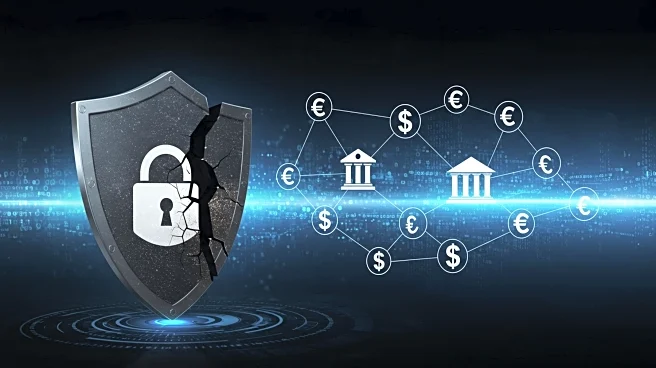What's Happening?
New York Attorney General Letitia James has filed a lawsuit against the banks behind the payment platform Zelle, alleging that its inadequate security measures facilitated over $1 billion in fraud from 2017 to 2023. The lawsuit claims that Zelle was launched by Early Warning Services (EWS), a company owned by major banks such as Bank of America, Capital One, JPMorgan Chase, and Wells Fargo, without sufficient safeguards, making it vulnerable to fraudulent activities. Key issues include a flawed registration process that allowed scammers to use misleading email addresses to impersonate government officials or businesses, tricking users into sending money that could not be recovered. Despite pressure from the government, Zelle only began reimbursing victims of imposter scams in 2023. The lawsuit also accuses EWS of failing to ensure timely reporting of fraud complaints and falsely advertising Zelle as a safe money transfer service.
Why It's Important?
The lawsuit highlights significant concerns about the security of digital payment platforms, which are increasingly used by consumers for financial transactions. If successful, the legal action could lead to stricter regulations and improved security measures for such platforms, potentially reducing the risk of fraud. The case also underscores the responsibility of financial institutions to protect consumers from scams and could result in substantial financial restitution for affected users. The outcome may influence public trust in digital payment systems and impact the operations of major banks involved in the lawsuit.
What's Next?
The lawsuit seeks restitution and damages for New Yorkers affected by scams on Zelle. As the case progresses, it may prompt other states to examine the security practices of digital payment platforms and consider similar legal actions. Banks involved may need to reassess their security protocols and customer service practices to prevent future fraud. The legal proceedings could also lead to increased scrutiny from regulators and potential changes in industry standards for digital payment security.









